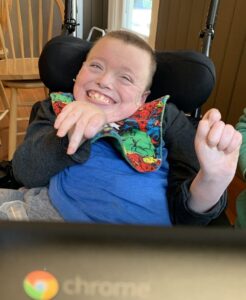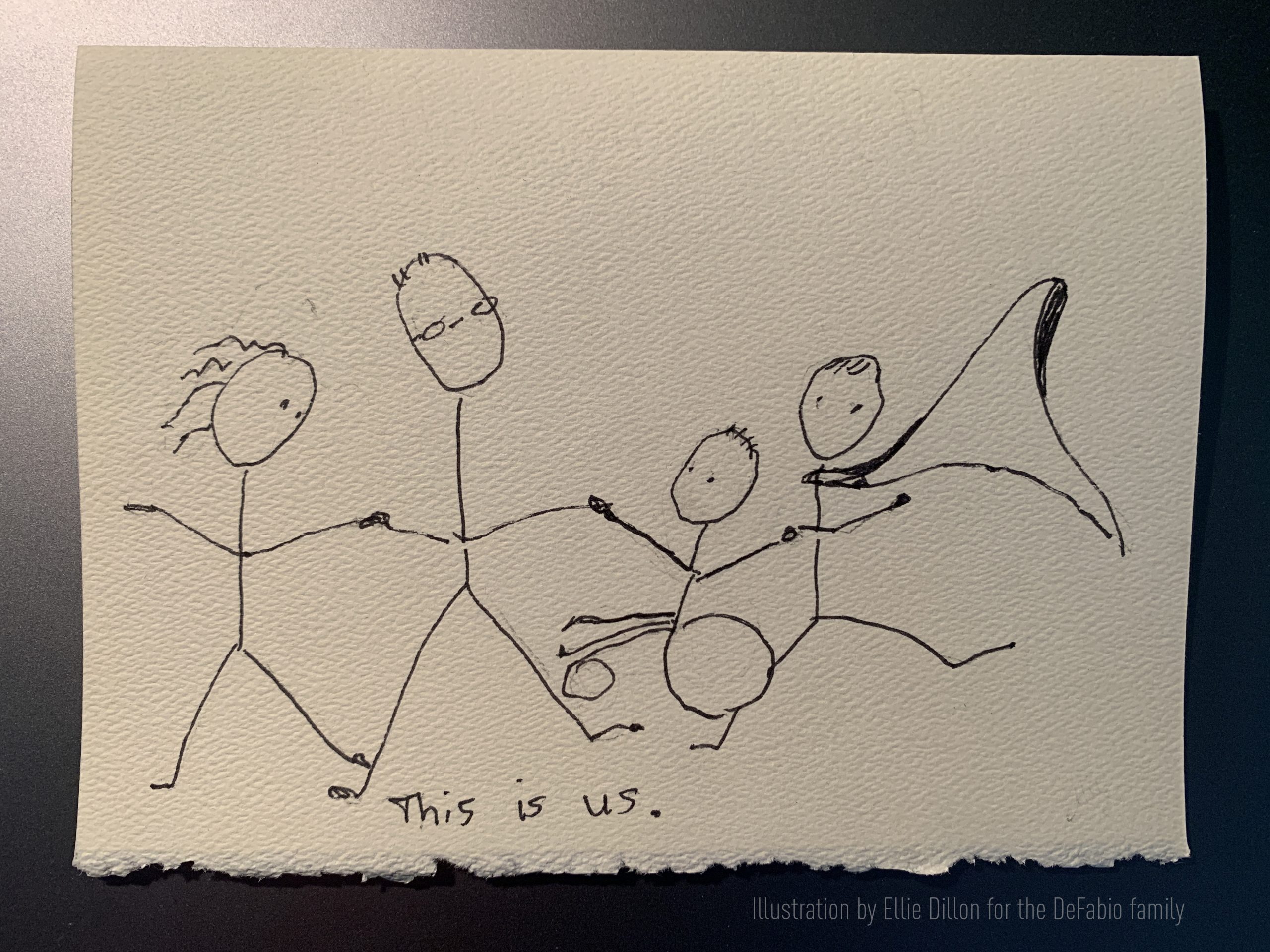The number one thing I hear from fellow parents of kids with life-threatening diseases is how isolating the experience is. I’ve felt it. How does this happen? Why does this happen? Many of us latch on to part of the answer early on. That is: no one can relate to our experience (except other parents of similarly ill kids). This is part of it and it may even be the biggest part of it. But that isn’t all of it. Sometimes it happens with the best of intentions; a friend decides not to invite my family thinking it will be too difficult for us to attend. And they may be completely right; many if not most things were difficult for us to attend. My son Lucas was in a wheelchair and needed some specialized care every three hours if not more often. That makes scheduling and attending a social outing tricky. But the thing is, I’d rather be invited and have to say no than have you not offer to include us.
I know this can feel like damned if you do and damned if you don’t. Why keep inviting us if we always say no? And when you do invite us I probably follow up with uncomfortable questions: How many steps to enter the first floor of your home? Is it too warm or cold at the event?
So yes, a big part of this boils down to: they don’t understand us and they don’t include us. But as I was chatting with a rare disease mom recently, we were surprised to admit to ourselves that after a few years the response “no, we can’t make it” had become an automatic reflex, a default. It’s not always true that we are isolated by others. Sometimes we are self-isolating. It may be a justifiable survival skill. We just can’t; can’t do the basics of social interaction, or the basics of transportation to get to the place of social interaction, at least not on the terms of those in typical health. To be honest, it’s just hard to fit anything extra into our days.
After we lost Lucas to Menkes Syndrome, I was surprised to look back on our strictly scheduled routine and realize how dependent on it we had become. It felt at the time that we could manage his care and the rest of our lives, so long as no curve balls came our way. One small unexpected thing could topple the Jenga tower of our lives. And I mean a small thing like a rescheduled appointment or a flat tire. Ordinary, no-fun-but-you-deal-with-it stuff, could break the levy and send the flood waters up to my nostrils. Yes, much of our scheduled routine was medically necessary or at least Doctors’ orders. But we might have leaned in a bit much. Maybe there was room for more flexibility than we gave ourselves. But the stakes were (or we felt them to be) life and death. I still smile when I recall the urologist who said Lucas would need a catheter every 3-4 hours. For us that meant every three hours WITHOUT FAIL. Not four. And then the tiny grin on his face during a follow up when he allowed “you know most people wouldn’t be so dedicated about the schedule, but I know you are.” In hindsight, I hear this remark almost as meaning “you can give yourselves some breaks, mom and dad”.
I can now see the comfort we extracted from routine. Predictability in the small things in the face of the supreme unpredictability: when would things get worse? When would we be rushed to the hospital? When would Lucas not recover? Beat down by our routine and overburdened by the demands of just the baseline schedule, we nearly forgot there was another answer possible. Sometimes we could, in theory, muster a yes. Yes, we can join you. It will take far more effort that I’m normally up for but this time I think we can manage it.

Excited to see friends- 1st day of virtual school
But I’ve also known people to pull away from us more than we’ve pulled away from them. I think this stems from discomfort with mortality, especially child mortality. Okay, sure you might want to avoid an awkward conversation about how my kid is doing (especially if you’re comparing him to your kid), but come on, we can get past that can’t we? I’ve had friends just ghost us once Lucas’s diagnosis was known. I know from other rare parents that they’ve experienced the same. Too many people are too uncomfortable facing a hard truth. The truth that we all die, some of us will die young, no one gets a pass. It’s unfair, uncomfortable, but it shouldn’t be insurmountable, especially if it’s only an occasional aspect of your life on the odd and brief occasions when our paths cross.
To be fair, we don’t have much training for this in our society. Death we get. We have our rituals, our phrases of condolences, our casseroles to deliver. But looming death, ambiguous loss, or debilitating illness? Too few of us have a playbook to react well to those. So some friends ghost. And perhaps proving this point, a close friend of mine was mostly absent from our lives during the eleven and a half years we had Lucas. But once Lucas died, he re-emerged and was kind, compassionate and supportive. I’m guessing the difference was he’d experienced and could relate to the death of a loved one but had no frame of reference for long term illness with death looming in the not too far future. I try to appreciate this. People can only do what they know to do.
All in all I’ve decided for us the isolation went both ways.
________________________________________________________________________________________________________________
At the age of 12 months Daniel’s first child Lucas was diagnosed with the rare disease Menkes Syndrome. After adjusting his expectations of what raising a child might look like, Daniel began to tell Lucas’ story with a short documentary: “Menkes Disease: Finding Help & Hope” narrated by Oscar nominee Mary McDonnell. That film led to Daniel co-founding with Bo Bigelow DISORDER: The Rare Disease Film Festival and later The Disorder Channel, both dedicated to spreading awareness for patient families facing any of the more than 7,000 rare diseases.
